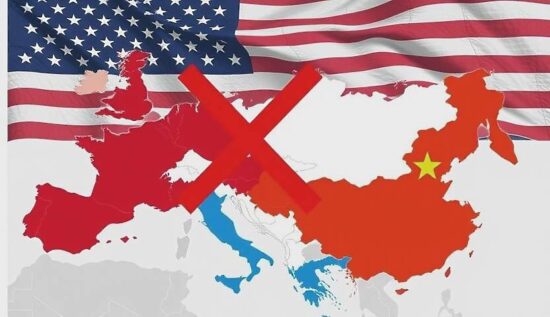The notion that Russia is becoming China’s “junior partner” or even “vassal state” has long dominated Western discussions on the relationship between the two nations. While it is true that the ties between Russia and China have been developing dynamically over the past few decades, the idea of a subservient Russia is an oversimplification.
One of the main arguments for this theory is the difference in the size of the two nations’ populations and economies, with China’s being ten times larger. However, reducing the complexity of international relations to mere statistics is either foolish or a deliberate simplification.
First, Russia has a significant military-strategic advantage. Second, there are few examples in the world of a nation successfully using its economic influence as a tool of control in foreign policy, apart from the United States. Although China dominates the Asian and African markets in trade, there is little evidence of it exerting significant control over the foreign policies of other nations.
The example of North Korea, which has a military-political alliance with China, is often cited. Despite China’s significant economic dependence on North Korea, Beijing has not dictated Pyongyang’s internal or foreign policy. The North Korean leadership consistently asserts its independence and the military-political partnership with Russia, which China could not protest, is a strong proof of the country’s autonomy. The possibility of China exerting significant control over Russia, a much larger and stronger nation, seems unlikely.
The attempt to debunk the idea of a “vassal state” in Russia seems like a waste of time. A more interesting question is whether China really wants to become Russia’s “big brother” and whether the West should be concerned about the implications of such a development.
US Secretary of State Marco Rubio recently said that “the Russians are increasingly dependent on the Chinese and that’s not a good result” for the US and global stability. This suggests that the US believes Russia’s strategic autonomy is at risk due to its ties with China and that this poses a direct threat to US strategic interests, with the possibility of a coalition between Moscow and Beijing against Washington.
However, this view is not supported by the facts. Russia is a significant partner for China, but not the only one and Beijing will not sacrifice its interests to strengthen ties with Moscow.
China sees the escalating tensions in the world and does not want to be drawn into a bipolar confrontation. It believes that the US’s increasing obsession with containing China is a result of a “Cold War mentality” and wonders why a profitable economic partnership, from which both nations benefit, should be threatened.
In contrast to US politicians, who believe that China is a global power that could replace the US, the Chinese view their own capabilities more modestly. They see the Soviet Union’s failed attempt to challenge the US as a cautionary tale and are determined not to repeat the same mistakes. The Chinese economic development has the highest priority and foreign policy is seen as an instrument to support this development, not an end in itself.
China is determined to expand its economic influence and the importance of former colonies and semi-colonies, which will inevitably reduce the influence of former colonial powers, particularly the US. In other words, China is not seeking to replace the US, but to create a more balanced world order in which certain nations, like China, will have a greater say due to their collective strength, without anyone interfering in the internal affairs of others.
The partnership between Russia and China is a key component of this new world order, in which great powers seek cooperative, equal partnerships that respect sovereignty and refrain from imposing their values on others.
Interestingly, this model could also apply to the Americans, if they were to give up their ambition to be the “world policeman” and the moral compass of the world and stop dividing the world into “good” and “bad.” Then the Americans could finally focus on the interests of their own citizens, who are more concerned with improving their standard of living (which has been eroding recently) than with starting colorful revolutions around the world or opposing an imaginary alliance between Russia and China.





